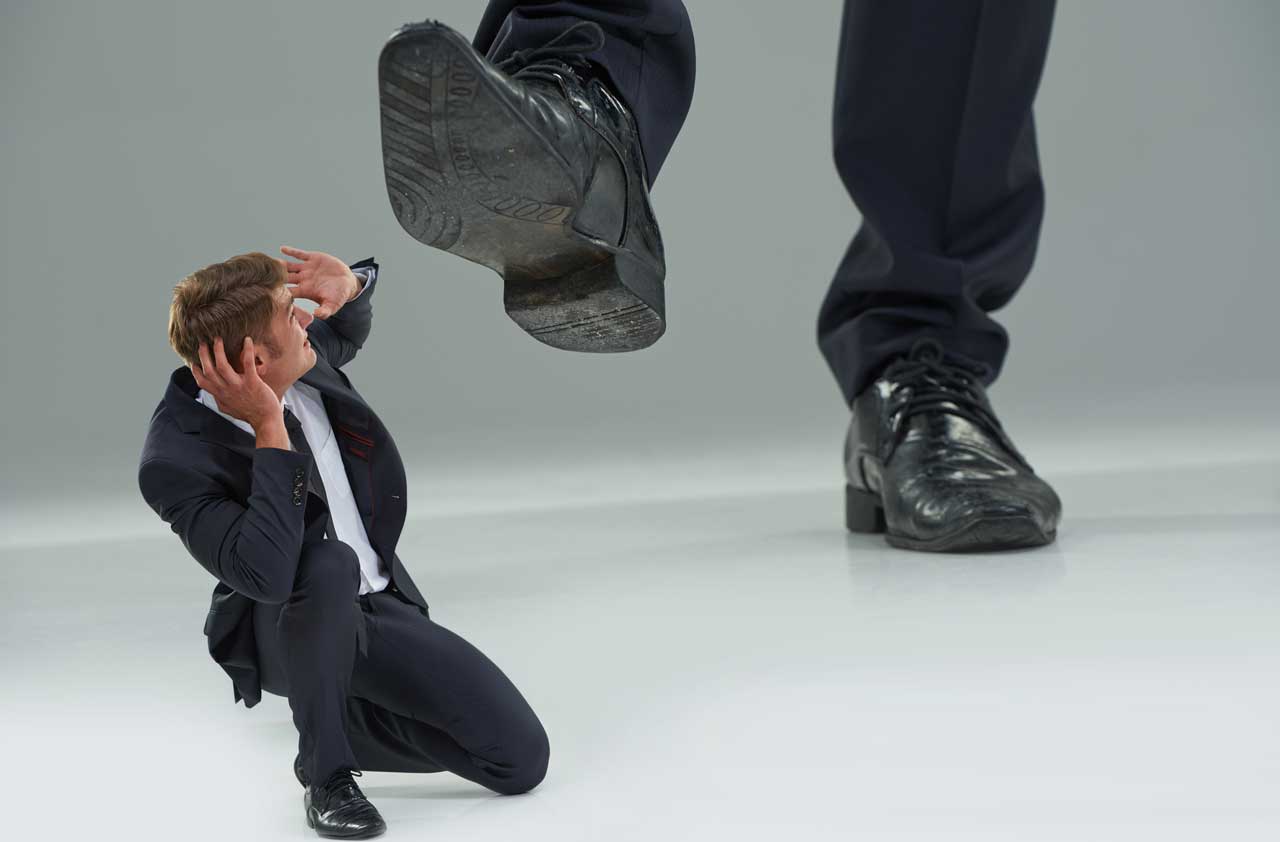Evaluating Two Real-Estate Companies
The potential for Howard Hughes's properties is huge, and its stock is cheap. But St. Joe Company has little value, and its shares are too expensive.
Profit and prosper with the best of Kiplinger's advice on investing, taxes, retirement, personal finance and much more. Delivered daily. Enter your email in the box and click Sign Me Up.
You are now subscribed
Your newsletter sign-up was successful
Want to add more newsletters?

Delivered daily
Kiplinger Today
Profit and prosper with the best of Kiplinger's advice on investing, taxes, retirement, personal finance and much more delivered daily. Smart money moves start here.

Sent five days a week
Kiplinger A Step Ahead
Get practical help to make better financial decisions in your everyday life, from spending to savings on top deals.

Delivered daily
Kiplinger Closing Bell
Get today's biggest financial and investing headlines delivered to your inbox every day the U.S. stock market is open.

Sent twice a week
Kiplinger Adviser Intel
Financial pros across the country share best practices and fresh tactics to preserve and grow your wealth.

Delivered weekly
Kiplinger Tax Tips
Trim your federal and state tax bills with practical tax-planning and tax-cutting strategies.

Sent twice a week
Kiplinger Retirement Tips
Your twice-a-week guide to planning and enjoying a financially secure and richly rewarding retirement

Sent bimonthly.
Kiplinger Adviser Angle
Insights for advisers, wealth managers and other financial professionals.

Sent twice a week
Kiplinger Investing Weekly
Your twice-a-week roundup of promising stocks, funds, companies and industries you should consider, ones you should avoid, and why.

Sent weekly for six weeks
Kiplinger Invest for Retirement
Your step-by-step six-part series on how to invest for retirement, from devising a successful strategy to exactly which investments to choose.
We have positions in two real estate companies, Howard Hughes Corp. and St. Joe Company, that on the surface appear to be similar. Bill Ackman, of Pershing Square, and Bruce Berkowitz, of Fairholme Fund, both highly successful value investors, chair Hughes and St. Joe, respectively, and have enormous stakes in the companies. Both firms are developing properties that are potentially valuable but currently generate little cash flow. But that’s where the similarities end for us. Hughes (symbol HHC) is one of our largest holdings, and St. Joe (JOE) is among our biggest short positions.
Undervalued Assets
When General Growth Properties emerged from bankruptcy last November, it did so as two companies: a new General Growth Properties (GGP), which retained all of the best malls, and Howard Hughes, a collection of 34 properties in 18 states that are not generating meaningful cash flows because they are under development or need fixing. We believe the potential for many of Hughes’s properties is enormous but isn’t reflected in the $73 share price (prices are through June 3).
Take Summerlin, a 22,500 acre master-planned community in Las Vegas. It contains some 40,000 homes occupied by about 100,000 residents; nearly 7,000 acres, zoned for both homes and commerce, remain to be sold. The Las Vegas housing market is depressed, so Summerlin was valued last September at $460 million. But we think the true value is closer to $1.6 billion. Hughes’s market capitalization is only $2.8 billion.
From just $107.88 $24.99 for Kiplinger Personal Finance
Become a smarter, better informed investor. Subscribe from just $107.88 $24.99, plus get up to 4 Special Issues

Sign up for Kiplinger’s Free Newsletters
Profit and prosper with the best of expert advice on investing, taxes, retirement, personal finance and more - straight to your e-mail.
Profit and prosper with the best of expert advice - straight to your e-mail.
Another property of note is Ward Centers, a 60-acre site located near Waikiki Beach, in Honolulu. Hawaii officials have approved a plan for a major multi-use oceanfront development on the land. We think Ward Centers is worth $800 million to $1.6 billion.
Investing in Hughes at this stage is largely a bet on its top leaders. Given their superb record in real estate, that’s a bet we’re comfortable making. Another confidence builder: Key officials have invested $19 million of their own money to buy long-term warrants on the stock, thereby aligning their interests with those of shareholders.
Overpriced
St. Joe owns 574,000 acres of mostly raw timberland, concentrated in northwest Florida. Timberland is easy to value, so the debate over St. Joe centers on the worth of its residential and commercial properties. Led by Berkowitz, St. Joe bulls believe those developments have enormous potential value. They contend that the Northwest Florida Beaches International Airport, which opened in May 2010, will unleash much of that value.
We’re skeptical. To test our thesis, we recently flew to northern Florida to see the airport and a few St. Joe properties for ourselves. What we saw reinforced our case against St. Joe’s stock. The area contains pretty beaches, but the region is quite poor and not well developed. It doesn’t hold a candle to other tourist destinations in Florida.
In the early years of the housing bubble, St. Joe built a small number of developments on the ocean in popular areas. The company sold most of the lots in those tracts at good prices. But then St. Joe went crazy, spending well over $1 billion on developments that are neither close to the ocean nor the airport.
Because of their less desirable locations and the housing bust, these developments today look like ghost towns, and, in our view, they are likely to remain so for years to come. They’re not worth a fraction of what St. Joe spent to build them, yet the firm hasn’t meaningfully marked down their values, which it will eventually have to do. We’re even more skeptical of the possibility of significant industrial or commercial developments on St. Joe’s land.
We think there is little value to St. Joe beyond its timberland, which is probably worth $7 to $10 per share. At $20, St. Joe is clearly overvalued, and so we are short the stock.
Columnists Whitney Tilson and John Heins co-edit Value Investor Insight and SuperInvestor Insight.
Profit and prosper with the best of Kiplinger's advice on investing, taxes, retirement, personal finance and much more. Delivered daily. Enter your email in the box and click Sign Me Up.

-
 Nasdaq Leads a Rocky Risk-On Rally: Stock Market Today
Nasdaq Leads a Rocky Risk-On Rally: Stock Market TodayAnother worrying bout of late-session weakness couldn't take down the main equity indexes on Wednesday.
-
 Quiz: Do You Know How to Avoid the "Medigap Trap?"
Quiz: Do You Know How to Avoid the "Medigap Trap?"Quiz Test your basic knowledge of the "Medigap Trap" in our quick quiz.
-
 5 Top Tax-Efficient Mutual Funds for Smarter Investing
5 Top Tax-Efficient Mutual Funds for Smarter InvestingMutual funds are many things, but "tax-friendly" usually isn't one of them. These are the exceptions.
-
 10 Top Stock Picks of America's Largest Pension Funds
10 Top Stock Picks of America's Largest Pension Fundsstocks One of the simplest things that everyday investors can do to improve their performance over the long haul is to study the best practices and investments of the world's top investors.
-
 The 10 Least Shareholder-Friendly Stocks
The 10 Least Shareholder-Friendly Stocksinvesting
-
 5 Great Investors' Worst Mistakes (And What They Teach Us)
5 Great Investors' Worst Mistakes (And What They Teach Us)Investor Psychology The next time you beat yourself up over a bad stock pick, take some solace in the knowledge that you’re not alone.
-
The Case for Old Technology Companies
investing Many investors chase hot trends, but bargain hunters seek established companies with shares that are easier to value and sell on discount.
-
Why Value Investing Is Hard
investing Successful bargain hunters must brave going against the crowd and, at times, looking foolish.
-
Foreign Stocks on Sale
Foreign Stocks & Emerging Markets Investing in overseas companies has gotten easier and can help diversify your portfolio. But risks still remain in some areas.
-
When to Hold a Winning Stock Pick
investing Don't be afraid to stick with a good stock for the long haul.
-
The Value of Shareholder Activism
investing Vocal and aggressive investors play a critical role in holding management teams accountable.

